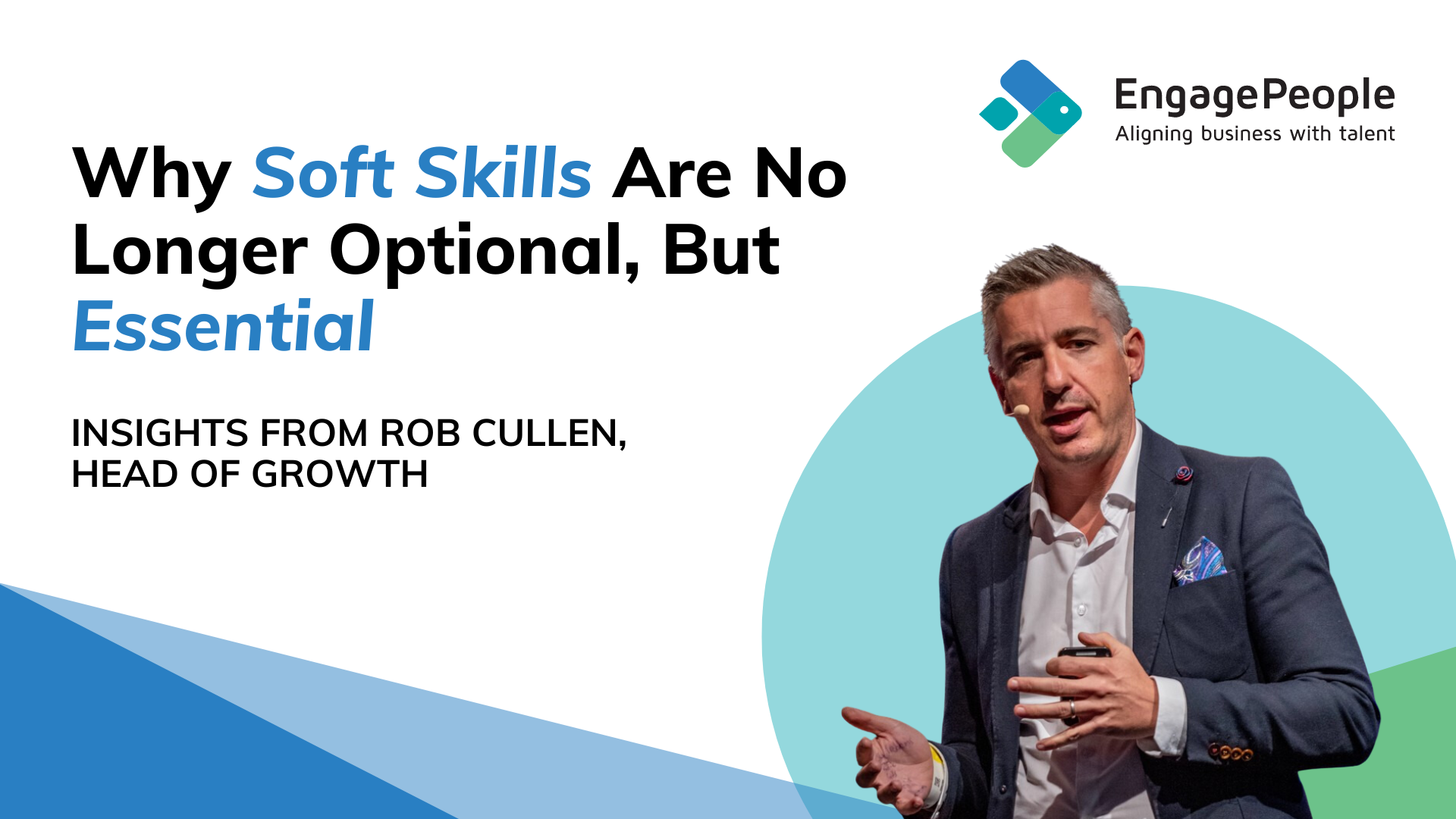Soft Skills Are No Longer Optional. Instead, They Are Essential
Rob Cullen
Rob Cullen

We are thrilled to bring you insights from our very own Head of Growth, Rob Cullen, whose expertise on the importance of soft skills was recently highlighted in the April edition of Ibec's Networks Engage newsletter.
In a conversation with Ibec, Rob delved into the transformative value of soft skills in today's world of work. As businesses navigate an increasingly complex and dynamic environment, the significance of these attributes has never been more prominent.
Join us as we explore Rob's invaluable perspectives on how cultivating soft skills can drive individual and organisational success.
In the dynamic landscape of modern business, technical expertise alone is no longer sufficient for sustained success. Employers and recruiters increasingly recognise the value of soft skills — those intangible qualities that define how individuals interact, collaborate, and navigate the complexities of the professional world.
A recent LinkedIn report found the top ranked soft skills among recruiters are: Communication, relationship building, adaptability, problem-solving and business acumen.
These are not just checkboxes on a CV; they are the driving forces behind successful teams and thriving organisations. Here’s a breakdown of each one and why we all need to improve on these so-called soft skills.
Communication stands as the cornerstone of effective collaboration and workplace harmony. In a study where 78% of employers deemed communication skills crucial, it's evident that the ability to articulate ideas, actively listen, and convey information clearly is paramount.
Effective communication ensures that team members are on the same page, reducing misunderstandings and enhancing collaboration.
Clear communication with clients builds trust and fosters lasting relationships, vital for business growth.
Strong communicators inspire and motivate teams, creating a positive work culture.
Business is inherently social, and the ability to build and maintain relationships is a skill highly valued in professional settings.
The significance of relationship building is underscored by the number of employers who prioritise this soft skill.
Strong relationships with clients lead to loyalty and repeat business.
A cohesive team is built on strong interpersonal relationships, fostering a positive and productive work environment.
It’s a skill that can be taught and is so essential now, post covid.
We need to train and encourage our teams to get out there and network.
Building relationships with industry peers and professionals opens doors to new opportunities and collaborations.
When you learn how to network, it doesn’t just improve your career – it improves your life too. You just never know where the next conversation could lead, but you do need to have the ability and want to start that conversation.
I could probably write a full article on networking alone, maybe that will be next.
The pace of change in the business world is relentless, making adaptability a critical soft skill. With 58% of employers recognising its importance, the ability to pivot, learn, and thrive in evolving circumstances is a key determinant of success.
Adaptable individuals bounce back from setbacks, contributing to a resilient workplace.
An adaptable mindset encourages openness to new ideas and creative problem-solving.
Businesses face constant change; adaptable employees ensure the organisation can navigate uncertainties.
No business is immune to challenges, and the ability to solve problems efficiently is a soft skill held in high regard by 53% of employers. Problem-solving involves critical thinking, creativity, and resourcefulness.
Swift problem-solving minimises disruptions and keeps operations running smoothly.
Creative problem-solving leads to innovative solutions, fostering a culture of continuous improvement.
Effective problem-solving contributes to informed and strategic decision-making.
Business acumen is the ability to understand and make sound judgments about business situations.
With 51% of employers emphasising its importance, this soft skill is the bridge between technical knowledge and effective business decision-making.
Individuals with business acumen contribute to strategic planning and decision-making.
Understanding business dynamics enhances the ability to identify opportunities for growth and profitability.
A keen business sense allows for effective risk assessment and management.
The narrative around soft skills must change.
Call them strong skills, brave skills, essential skills or leadership superpowers- just stop calling them soft: They are essential skills and anything but soft!!
Contact Rob to learn how you can leverage these insights to improve your company's hiring and retention strategies.
Rob Cullen
Head of Growth, Engage People Recruitment